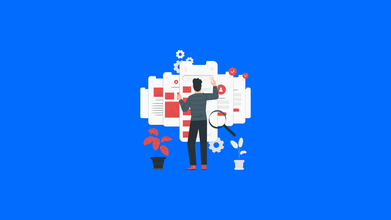Data Science in the Post-COVID World
Apr 16, 2021 7340 seen
Coronavirus (COVID-19) has changed most aspects of our life, especially the way we do business. It has impacted billions of lives across the globe. All the companies tried to quickly change the way they manage the keys to their data kingdoms to maximize their data’s value to survive and compete. We have seen governments take charge to protect citizens, citizens take responsibility for protecting each other. Now that many are trying to “return to normal,” many aspects of society will never return to normal life.
Below you can find examples of Artificial Intelligence, which will play a major role in a post-COVID world and shape the business landscape moving forward.
Smart Future
We have many lessons to draw from the events of COVID-19. However, one of the most critical is the importance of being able to use data to prepare for potential scenarios and inform our decisions making. There is a real and urgent need for those professionals with the skills to crunch data quickly, and to implement the data strategy needed for this analysis and processing.
Since the world prepares for ‘the new normal’ post-pandemic, and all the economic, social, and political question marks that look above it, many are looking to the tools of data science to continue to help us inform our trajectory. Data science, and the technology it powers, are rapidly becoming an important component of nearly every industry in both the public and private sectors.

AI in Old Industries
Some analog and heavy industries such as mining, energy, manufacturing, and food processing will use artificial intelligence tools such as computer vision and robotics. As society relied heavily on technology to continue day-to-day functionality, many companies have digitized both their internal processes and the products and services they produce.
Companies that have made the digital leap are more likely to survive the global pandemic as people seek non-contact and low-contact ways to interact with the business. Many old-guard companies have found it difficult to adopt AI because some of their processes or product delivery are not digitized. These companies and industries can realize an unexpected benefit from digitization: the ability to implement analytics and artificial intelligence.
Getting out of Data and Analytics Comfort Zones
Both senior executives and data scientists are being pushed beyond their comfort zone concerning data security, sovereignty, and governance. Organizations that have embraced SaaS and the cloud to democratize data are removing only one obstacle to building a data-driven culture. Organizations must also break down the conceptual barriers that divide employees into binary categories: those who are familiar with the data and those who do not.
Significant advances in artificial intelligence built into analytics platforms enable new users to more confidently and successfully explore data. Organizations must use these tools and training to create a culture in which everyone, not just the IT professional, application developer, or storage architect, can be more successful with data.
Possible Opportunities
Implementing data science can also help identify new business continuity opportunities. Analyzing the available data resources can pinpoint any gaps and improvise with them to find new opportunities. For example, many companies have pooled COVID case data and combined it with employee data to understand unique and more effective ways to support employees during a crisis.



